Music
Subject Leader: Mrs E Warburton - warburtone@saintgeorgescofe.kent.sch.uk
Music is a universal language that embodies one of the highest forms of creativity. High-quality music education should engage and inspire pupils to develop a love of music and their talent as musicians, and so increase their self-confidence, creativity and sense of achievement. As pupils progress, they should develop a critical engagement with music, allowing them to compose, and to listen with discrimination to the best in the musical canon.
Intent
The National Curriculum for music aims to ensure that all pupils:
- Perform, listen to, review, and evaluate music
- Be taught to sing, create and compose music
- Understand and explore how music is created, produced, and communicated.
Children are given many opportunities to engage in a wide range of musical experiences, including listening, singing, performing, evaluating, and composing across a range of historical periods, cultural traditions, and musical genres. Our objective is to develop a love of music, inspire creativity, and have an appreciation of a wide range of musical styles. We are committed to ensuring children develop an appreciation of the cultural and historical importance of music.
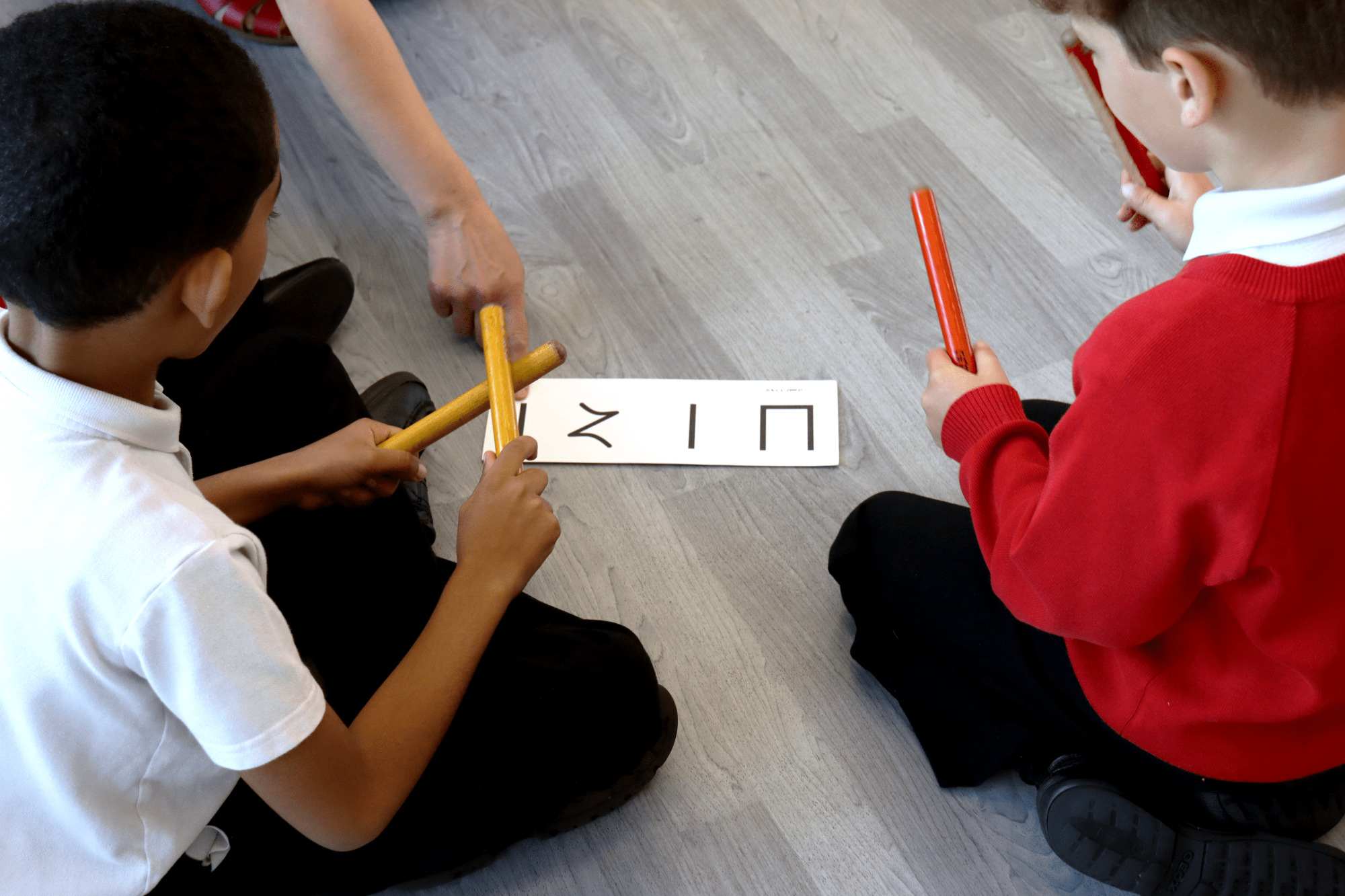
Implementation
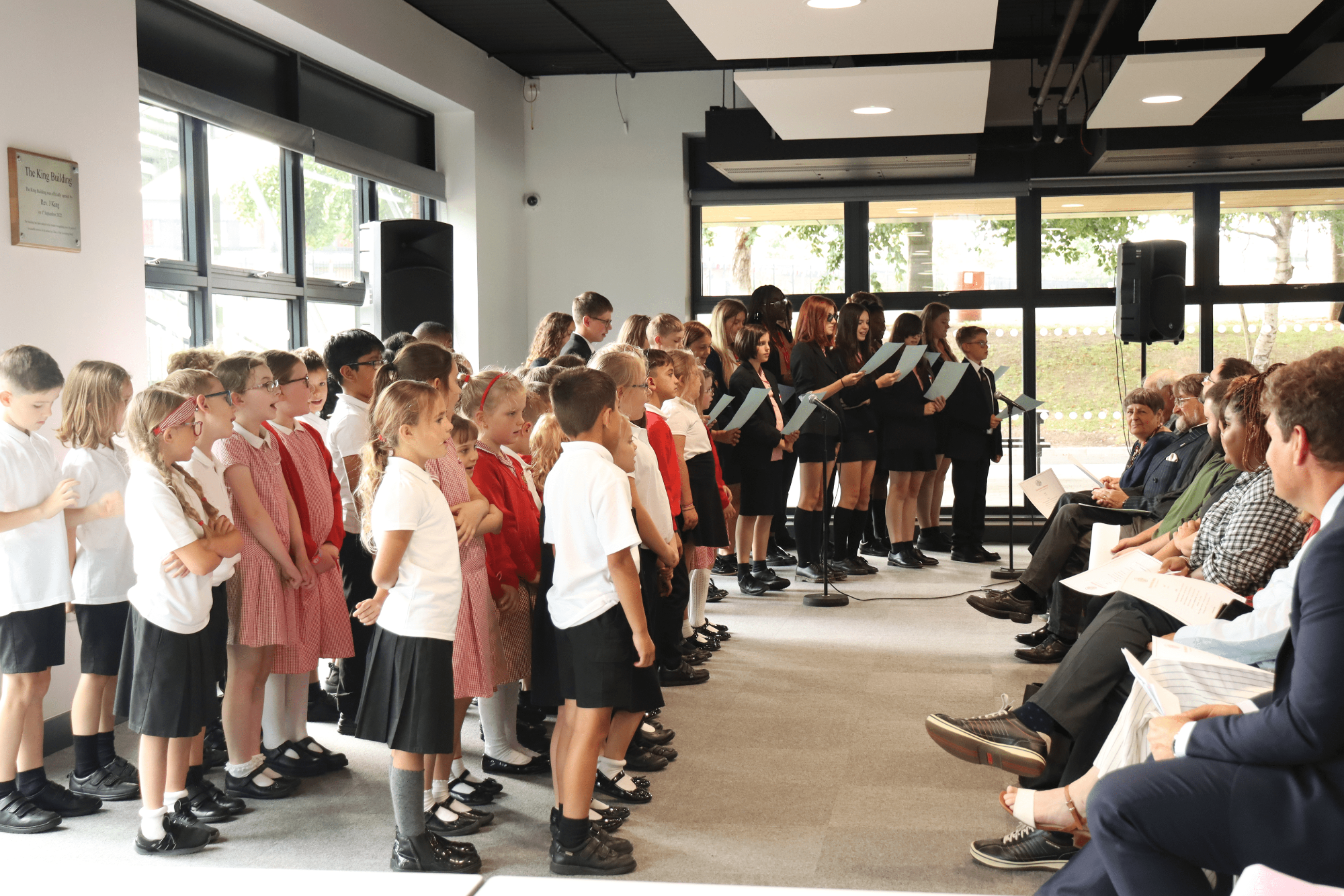
All children participate in weekly whole-class music lessons delivered by music specialists in KS1 and KS2 and singing worship is delivered weekly to the whole school including EYFS. The elements of music are taught as part of carefully structured classroom lessons based on the Kodaly method, enabling all pupils to participate and analyse how music is created. They also learn how to compose, focusing on the different dimensions of music which develops understanding when listening, playing, or analysing music. As part of the curriculum, pupils are taught to listen, play, perform, improvise, compose, and appreciate music. Specialist instrumental teachers are available for private tuition after school. The Music Coordinator runs a weekly choir club throughout the year for children in EYFS, Key Stage 1, and Key Stage 2. Children in KS1 and KS2 are given the opportunity to perform at a range of concerts in collaboration with Saint George’s Church of England Secondary School, the Aletheia Academies Trust, and Young Voices.
Impact
Children will develop an understanding of the different components of musical structure and will be able to enjoy music as a listener, creators, or performers. Children acquire vital knowledge about the possible careers in music that are available to them by attending concerts and listening to local musicians performing in school and in the wider community.
Children will develop their listening skills and be able to identify music from different historical periods and discuss the similarities and differences between various musical genres. Children will develop their confidence, social skills, and sense of achievement when singing and performing and will develop a sense of achievement from representing the school as part of the school choir.
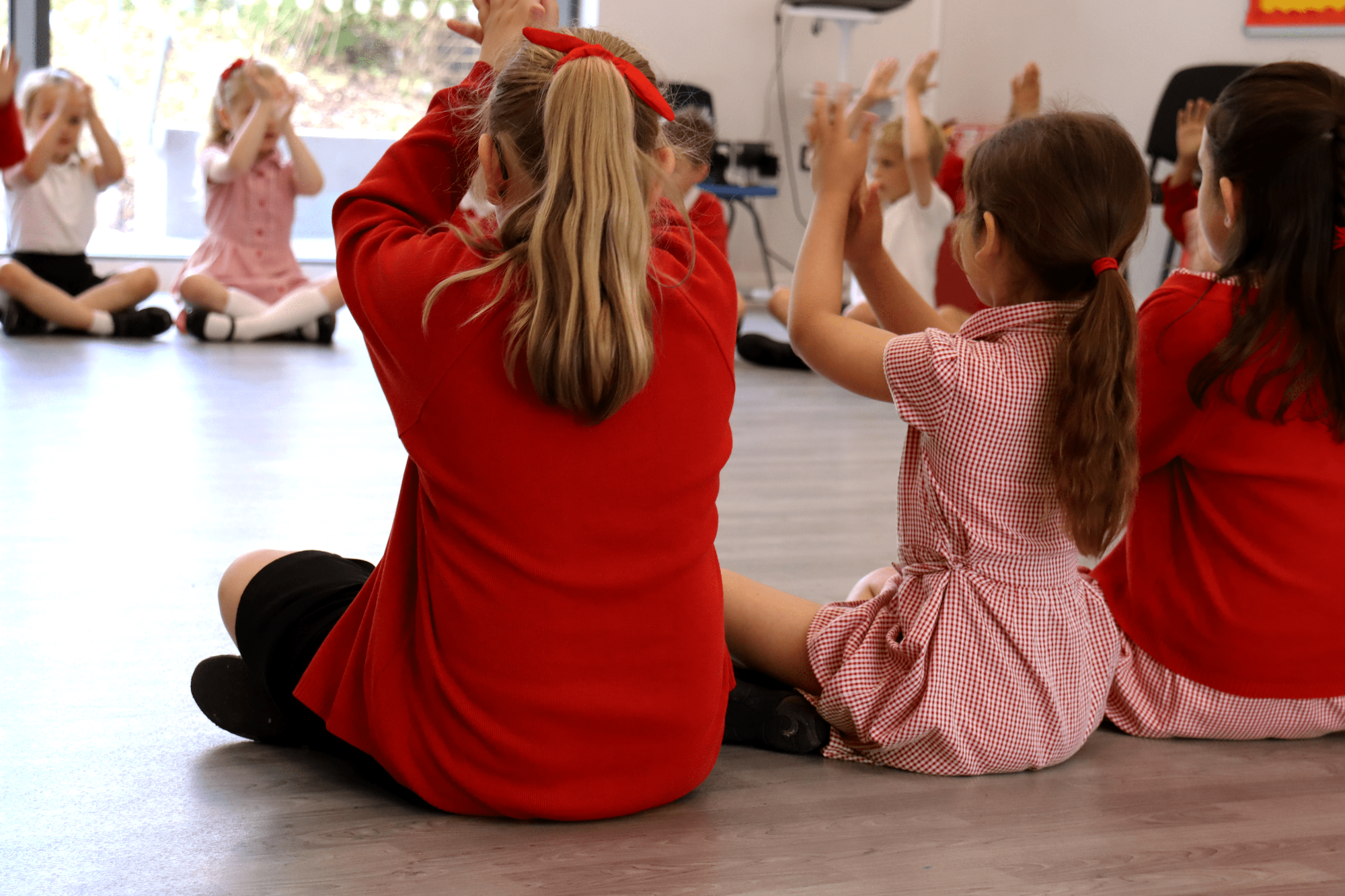
Music at Early Years Foundation Stage (EYFS)
Music is part of the Expressive Arts and Design Area of Learning of the Early Years Foundation Stage Curriculum.
Our aim is to engage and inspire children to develop a love of music and their talents as musicians and so increase their self-confidence, creativity and sense of achievement. Children engage in a wide range of activities including singing, playing tuned and untuned percussion instruments, listening to a range of music from different times and cultures and experimenting with composition. Music skills are further developed through our cross-curricular planning.
Within the EYFS, our children take part in regular musical activities both child-led and adult-led. This can help support children’s acquisition of language and communication. It can also aid their personal and social development, physical agility, well-being, imagination and creativity.
Music also helps to support our children’s communication and language. By tuning children into the rhythm of language, through music, we are helping them to hear the patterns of sounds that we know as words and phrases.
Our children have access to musical instruments both inside and outside and particularly enjoy exploring music using items they have created themselves.
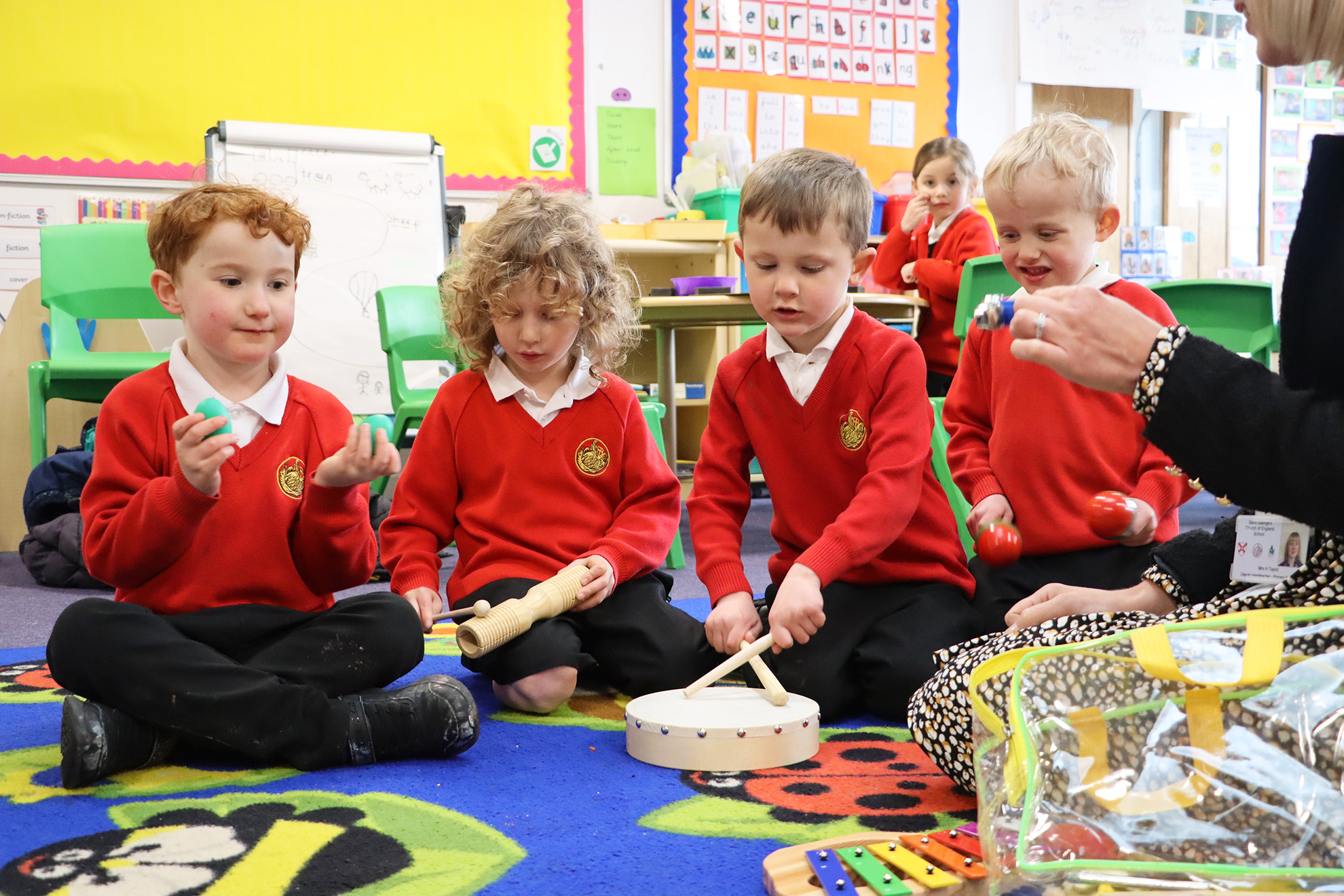
Progression of Skills
| Term | Topic |
|---|---|
| 1 |
Pulse Feel and demonstrate the pulse. Keep the pulse in pairs exploring faster and slower pulse keeping. |
| 2 |
Pitch Recognise and show two pitches (high and low). |
| 3 |
Pitch Call and response (pitch matching). Recognise and show three pitches (high, middle and low). |
| 4 |
Rhythm Start to tap into the rhythm. Solo singing/improvising words and actions. |
| 5 |
Pulse Visual representation of the pulse. Tap the pulse on drawn heartbeats. |
| 6 |
Rests Practise consciously showing the rest (SSH - hands open). |
Music at Key Stage 1 (KS1)
Pupils should be taught to:
- Use their voices expressively and creatively by singing songs and speaking chants and rhymes
- Play tuned and untuned instruments musically
- Listen with concentration and understanding to a range of high-quality live and recorded music
- Experiment with, create, select and combine sounds using the inter-related dimensions of music
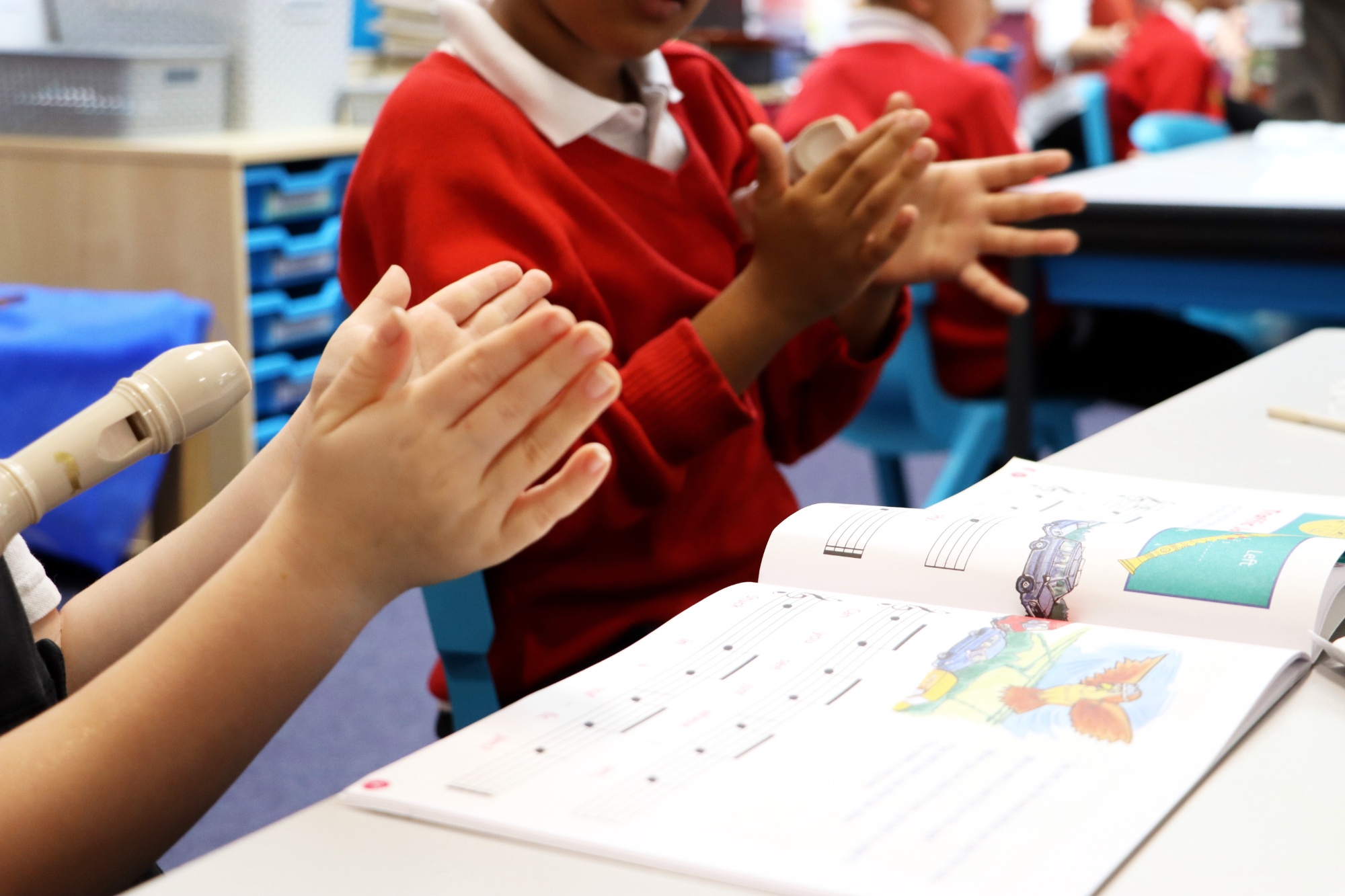
Progression of Skills
Year 1
| Term | Topic |
|---|---|
| 1 |
Performing Using the voice to speak, sing and chant; using untuned percussion instruments to perform. |
| 2 |
Performing Clapping short rhythmic patterns; making different sounds with voices and instruments. |
| 3 |
Performing Repeating short rhythmic and melodic patterns; making a sequence of sounds. |
| 4 |
Listening Responding to different moods in music; discussing likes and dislikes when listening to a piece of music. |
| 5 |
Composing Choosing sounds to represent different things. |
| 6 |
Performing Following instructions about when to sing and play. |
Year 2
| Term | Topic |
|---|---|
| 1 |
Performing Singing songs and following a melody; performing simple patterns, and keeping a steady pulse. |
| 2 |
Performing Play simple rhythmic patterns on an instrument; sing or clap with increasing and decreasing tempo. |
| 3 |
Listening Listening out for particular things when listening to music. |
| 4 |
Composing Ordering sounds to create a beginning, middle and end. |
| 5 |
Composing Creating music in response to different starting points; choosing sounds to create an effect. |
| 6 |
Composing Using symbols to represent sounds; making connections between notations and musical sounds. |
Music at Key Stage 2 (KS2)
Pupils should be taught to:
- Play and perform in solo and ensemble contexts, using their voices and playing musical instruments with increasing accuracy, fluency, control and expression
- Improvise and compose music for a range of purposes using the inter-related dimensions of music
- Listen with attention to detail and recall sounds with increasing aural memory
- Use and understand staff and other musical notations
- Appreciate and understand a wide range of high-quality live and recorded music drawn from different traditions and from great composers and musicians
- Develop an understanding of the history of music
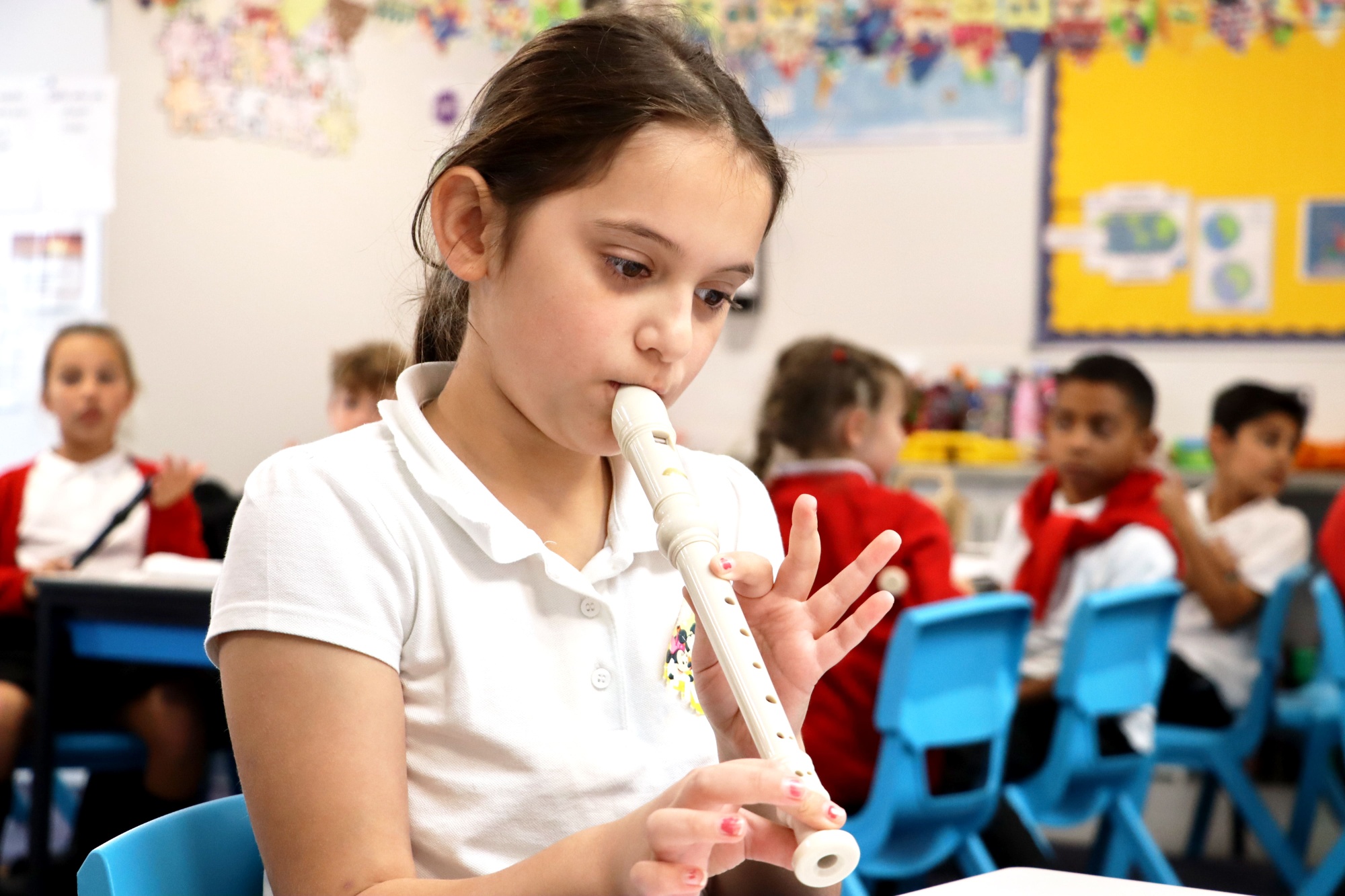
Progression of Skills
Year 3
| Term | Topic |
|---|---|
| 1 |
Performing Singing a tune with expression; creating repeated patterns with different instruments. |
| 2 |
Composing Composing melodies and songs; creating an accompaniment for tunes. |
| 3 |
Composing/Listening Combining different sounds to create a specific mood or feeling; using musical words to describe a piece of music. |
| 4 |
Listening Recognising the work of at least one famous composer. |
| 5 |
Listening Using musical words to describe likes and dislikes about a piece of music. |
| 6 |
Composing Improving my work and explaining how it has been improved. |
Year 4
| Term | Topic |
|---|---|
| 1 |
Performing Singing songs from memory with accurate pitch; performing simple parts rhythmically. |
| 2 |
Composing Using notation to record compositions; recording sequences of the pitch. |
| 3 |
Listening To discuss the importance of silence in music; identifying character in music. |
| 4 |
Performing Improvising using repeated patterns. |
| 5 |
Listening Identifying and describing the different purposes of music. |
| 6 |
Listening Identify the style of work of Beethoven, Mozart and Elgar. |
Progression
At Saint George's C of E Primary Phase, we develop our pupil’s Musical understanding through essential skills; growing their depth of knowledge year after year.
SEND Information
We ensure that SEND and disadvantaged children are given the necessary support in class to fully access the Music Curriculum and equal opportunities are given for all to be confident in approaching any problem within the world around them.
Extra Resources
- 5 Musical Ideas to Try
- Royal Albert Hall: Orchestral Adventure
- Sing Up Resources
- Chrome Music Lab
- Learn to Play the Guitar
Music Games
